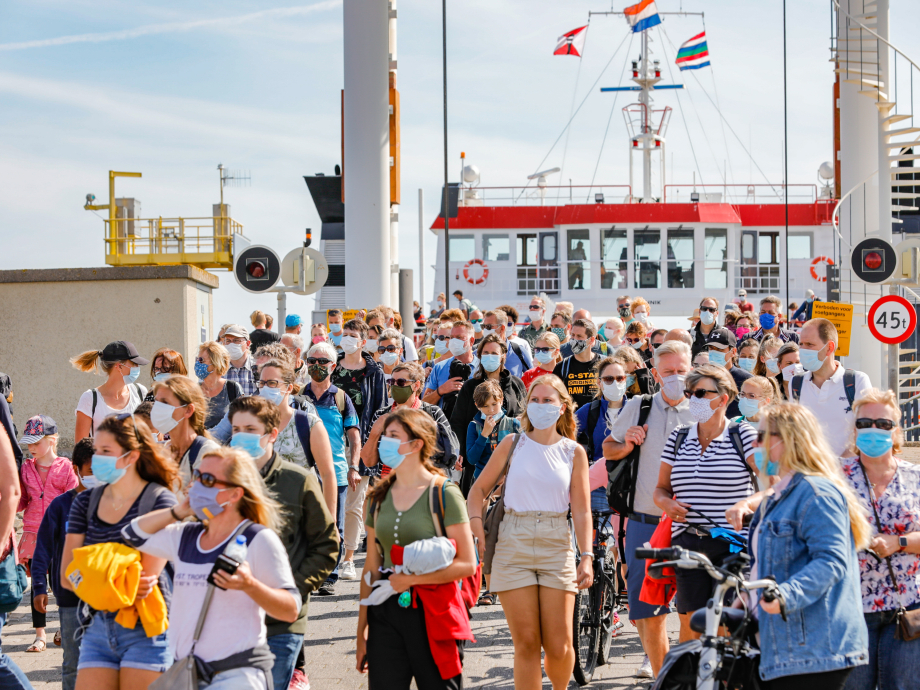The COVID-19 pandemic: drawing lessons to strengthen societies
Worldwide, countries have dealt with the COVID-19 pandemic differently. What political and social discussions have there been regarding the role of technology, science and innovation? What can we learn from these discussions? In the beginning of November, the Rathenau Instituut and its international colleagues, all part of the European Parliamentary Technology Assessment (EPTA) network, will present a report that addresses these questions. This year, the Rathenau Instituut is the chair of the EPTA network and the initiator of the EPTA report. In this article, we preview this unique publication.

In short:
- The report is centered on the question what politicians, policy-makers and citizens can learn from the deployment of technology, science and innovation in different countries whilst dealing with the COVID-19 crisis.
- The report will be presented at a conference, at which the international authors will discuss their findings with Members of Parliament and policy-makers.
- Tijdens de presentatie van het rapport zullen de internationale auteurs met parlementsleden en beleidsmakers in gesprek gaan over bevindingen en de betekenis daarvan voor toekomstige maatschappelijke uitdagingen.
International crisis
The COVID-19 pandemic has entered a new phase in the Netherlands as the Dutch Cabinet has lifted the 1,5 metre rule. These days, the COVID-19 strategy of the Dutch government focuses on digital technology such as a COVID-19 Certificate that includes a QR-code and increasing the number of people who are vaccinated. Thus, countries worldwide apply different strategies and make specific decisions to deal appropriately with the virus. Moreover, each country weighs scientific insights and the deployment of technology in a different manner. This is a result of a crisis that has caused different situations and realities all over the world.
During the last year and a half, governments around the world have been faced with the challenge of making good political decisions based on knowledge and technology that were readily available. They have made their decisions depending on the complex reality that the virus had caused in their country. Furthermore, these decisions have been made whilst taking a country's specific knowledge system and public health infrastructure into account. Yet, despite differences, there have been many similarities as well in the way countries have responded to the pandemic. For example, countries have encountered similar vulnerabilities or challenges while fighting the virus. These challenges have underlined the importance of democratic decision-making regarding science and technology. In addition, the value of evidence-based decision-making has become even more apparent.
What do we learn from the corona pandemic?
How did the COVID-19 crisis unfold in different countries? How did governments respond and how did they use technology, science and innovation to combat the crisis? These questions are addressed in the report that the Rathenau Instituut will publish in November. This report is a collaboration with other EPTA members; international colleagues who are part of similar research organisations worldwide. For the publication, all EPTA members have reflected on their own role in the crisis. Moreover, they have examined how they can best support policy-makers in these sorts of situations, such as pandemics or other crises.
The publication contains an overarching analysis, drawing lessons for the future from the different experiences worldwide. The Norwegian colleagues from the Norwegian Board of Technology have helped the Rathenau Instituut with the analysis and synthesis of the contributions from the various institutes. The analysis provides insights into ways politicians can strengthen institutions such as public health facilities and scientific advisory councils to better cope with pandemics and other major societal challenges. Special attention is paid to the role of citizens in political decision-making. Citizens are not always sufficiently involved in the decision-making process of the crisis. How can this be improved in the future? The publication offers perspectives for dealing with these issues. They can be applied both to similar future crises and major societal challenges, as well as to the lasting changes caused by the COVID-19 crisis, and how we should deal with them. This includes the issue of the further expansion of the digitalisation of work, education and care.
The international comparison of the approach to the COVID-19 pandemic makes this study unique in its kind. Petra Verhoef, theme coordinator at the Rathenau Institute, and one of the authors of the report: 'We work with 23 organisations from 21 different countries on this report. From Norway to Austria and Poland. This gives us the opportunity to look at the COVID-19 pandemic from an international perspective and analyse it. This provides valuable insights, both for parliaments and policy-makers, as well as for citizens.'
Report publication
The presentation of the publication will take place on November 9 (14:00-16:00) during a hybrid conference (online and offline). The Rathenau Instituut will officially offer the report to Mark Roscam Abbing, Program Director General Society and COVID-19 of the Dutch central government. During the conference, the many international authors will discuss the findings of their research with parliamentarians and policy-makers. This closed session is open for interested journalists. Interested in attending as a journalist? Please send us an email. After the meeting, we will publish a summary of the conference activities on the website of the Rathenau Instituut.